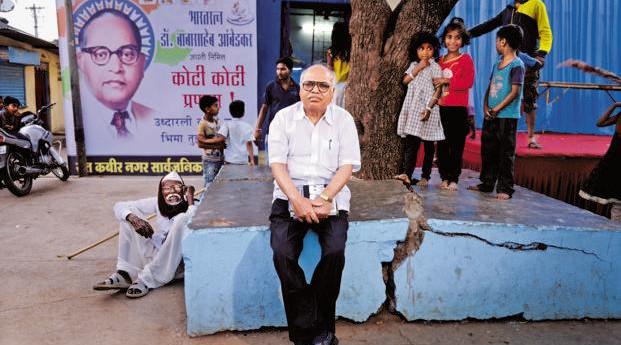Revisiting Golwalkar on Koregaon with Raosaheb Kasbe

Image Courtesy: Livemint
Revisiting Golwalkar on Koregaon with Raosaheb Kasbe
Scholar Raosaheb Kasbe’s book Zot—translated from Marathi into English as Spotlight on the RSS—refers to Golwalkar’s “grief” on the Mahars fighting the Peshwas. At a time when Koregaon has become a battleground again, it is important to revisit the underpinnings of caste in every reading of this historical incident. This is what Raosaheb Kasbe has to say:
“Golwalkar expresses grief over untouchables supporting the British and fighting with the Peshwa. There is a Victory Pillar in Koregaon near Pune. There are names of soldiers carved on the pillar who fought with the Peshwa. The national leader of the dalits once spoke of the pillar as ‘This Pillar is a symbol of the victory of Harijans over Brahmins.’ The reason was they fought with Brahmins with support of the British and defeated the Peshwa. While taking note of this event, Golwalkar describes it as ‘What a perversity!’ (Bunch of Thoughts: 111). But he does not talk about the Peshwa, his evil intentions or perversion even. There is not a word or a single mention. Let me quote the entire paragraph from Golwalkar’s book to understand his attitude towards the caste politics:
In their hearts of hearts, very few of these anti-caste zealots experience the sense of unity that can transcend the present-day perversities. Anti-caste tirade has verily become a mask for them to strengthen their own positions among their caste fellowmen. To what extent this venom has entered our body-politic can be surmised from an incident which occurred some years ago. There is a Victory Pillar near Pune, raised by the English in 1818 to commemorate their victory over the Peshawas. An eminent leader of the Harijan once addressed his caste-brethren under that pillar. He declared that the pillar was a symbol of their victory over the Brahmins as it was they who had fought under the British and defeated the Peshawas, the Brahmins. How heartfelt it is to hear an eminent leader thus describing the hated sign of slavery as an emblem of victory, and the despicable action of fighting as slaves of a foreigner against our own kith and kin as an achievement of hatred, not even able to discern the simple fact of who the victors were and who the defeated! What a perversity! (Bunch of Thoughts: 110-111).
We must read the original texts and find out why and how bahujan communities fought with the Peshwas. The Peshwas had harassed dalits and Maratha farmers. Such harassment was exceedingly crude, inhuman, bestial and malicious, and beyond anyone’s imagination. They raped women and unmarried girls of dalits and Maratha farmers. Such was the menace that even reading or hearing about what the Peshwas did creates fear and turmoil in our minds. The Hinduists of today, on the contrary, like Golwalkar, justify such cruel Peshwas. Also, they do not want to lose their place as a dictating class. Similarly, they consider non-Brahmins Shudras, and assert their political supremacy. In spite of such contradictions, they argue that only they are the real nationalists. And the only objective correlative is that they are the only Hindu-Brahmins! Besides, they over-emphasise the message Hinduism as nationalism. Who will venerate such a statement? In a nation in which there is a perpetual climate of slavery; a nation in which the common man is continuously exploited in the name of religion; a nation in which one wealthy class leads a life of luxury and hedonism and is parasitic; in such a nation, nationalism never comes into existence. In such a nation, the only -ism that can sprout is the -ism of class-dominance and, in the context of India, it is a discourse of casteism!”
Extracted from Spotlight on the RSS by Raosaheb Kasbe, translated by Deepak Borgave.
Get the latest reports & analysis with people's perspective on Protests, movements & deep analytical videos, discussions of the current affairs in your Telegram app. Subscribe to NewsClick's Telegram channel & get Real-Time updates on stories, as they get published on our website.
























